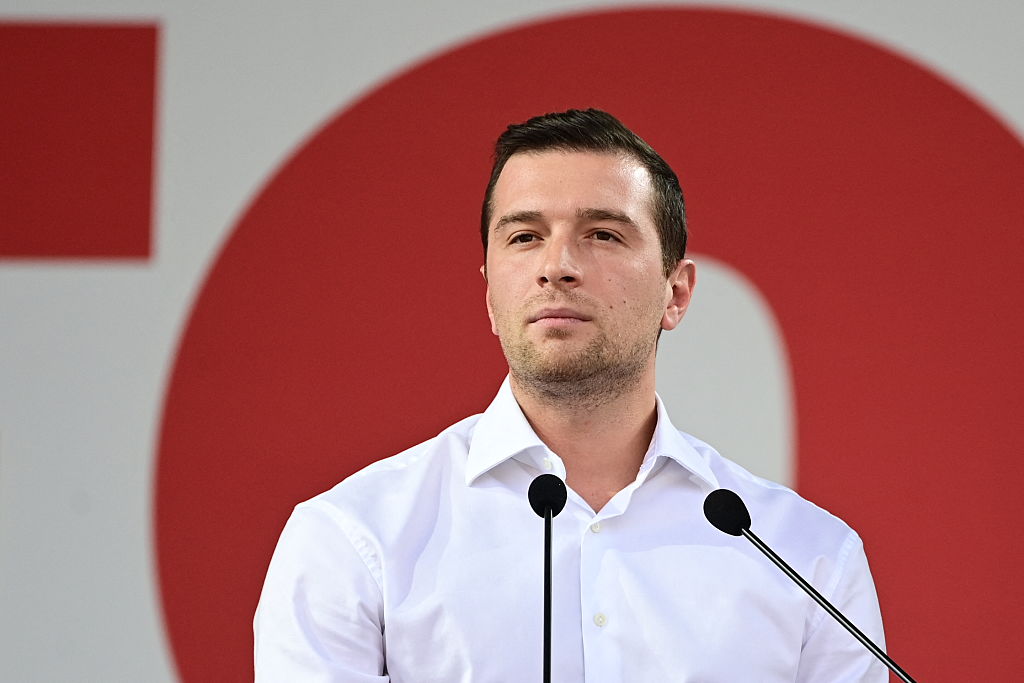The British royals are coming after American free speech, just days before Donald Trump is set to take office as president for the second time.
Prince Harry and Meghan Markle expressed outrage that Meta, owner of Facebook and Instagram, changed policy to rely on community notes versus a dedicated fact-checking department.
Ironically, the pair suggested Meta’s policy change “directly undermines free speech.” How exactly? Because, according to Harry and Meghan, Mark Zuckerberg is, allegedly, prioritizing those using social media “to spread hate, lies and division.”
What’s more, the pair suggest Meta’s decision is based on American politics which should “never determine whether freedom of expression and civil and human rights are protected in the online spaces so clearly shaping or destroying democracy.” So much for the War of Independence.
Trump campaigned on a promise to “Make America Great Again (Again).” The former president and now president-elect has made a name for himself with his uber-patriotism — some would say nationalism — and eschewing of more European-style policies on everything from high tax rates to “net zero” environmental and energy standards to immigration rules. In his first term, he battled European leaders on an array of policy matters, including NATO contributions and many European nations’ tendency to rely on the US for their security needs instead of standing up their own national defenses.
So why would congressional leaders about to find themselves operating under a second Trump administration think that the incoming commander-in-chief would likely support efforts to adopt a decidedly European approach to regulating Big Tech?
The Kids Online Safety Act (KOSA) has been hanging around Congress since 2022. Its biggest champions are Senators Richard Blumenthal and Marsha Blackburn, but outgoing President Joe Biden also supports the bill.
House Speaker Mike Johnson said it’s more important to “get this issue right,” invoking free speech rights.
The bill also apparently has the support of Elon Musk — odd because the bill is based on the Center for Countering Digital Hate’s STAR policy framework. Musk notoriously sued CCDH over its attacks on Twitter early last year; he clearly views CCDH as a bad actor. Yet CCDH is a big booster of KOSA, most likely because the bill aligns nicely with CCDH’s objectives and methodology. CCDH may not care that X likely wouldn’t be KOSA-compliant as the bill is written, but Musk and other MAGA folks should — and Trump perhaps should most of all. He has leapt to the defense of TikTok, on the basis that Americans who supported him in November’s election are heavy users of it. Goodness knows, many of them are also heavy users of X.
Musk has been a defender of freer speech, even as he may have misjudged this legislation and its potential negative effect on his platform. Just last month, he denounced police in England for investigating a sixty-four-year-old journalist over a year-old tweet. What he may have missed: police were able to launch that investigation due to the UK’s Online Safety Act law. That law happens to share foundations and key principles with KOSA.
Harry is at the forefront of pushing for the US to adopt more UK-style approaches to internet regulation, such as KOSA. The Duke of Sussex teamed up with the Aspen Institute on pro-KOSA publications. This included a series of recommendations through the provocatively named Commission on Information Disorder. Among the suggestions were a comprehensive “comprehensive strategic approach to countering disinformation and the spread of misinformation, including a centralized national response strategy.” This strategy would hold “superspreaders of mis- and disinformation” accountable with nimble actions and penalties “regardless of location, or political views or role in society.” The recommendations were released in late 2021 as the coronavirus pandemic slowly eased.
Other Brits actively supporting KOSA include Baroness Beeban Kidron. Kidron, once called an important architect of Age Appropriate Design Code laws in several states, is a member of the UK House of Lords. She’s tight with Blumenthal and Blackburn on KOSA (Blackburn posted photos of the two after a meeting). Kidron once claimed she tells people, “Yeah, you should,” when she’s asked why American children don’t have “the same protections as the UK.”
Why KOSA would play with a president like Trump, or his apparent new best friend Musk, may be baffling on a pure US values versus British or European values level. But it’s worth noting there are real, practical reasons why the bill should fly with neither of them, nor the majority of senators who seem to have lined up to support KOSA so far. For example, KOSA lays the foundation for user age verification by social media companies; that could easily mean huge threats to kids’ and parents’ privacy, including by identity theft where cybersecurity measures fail.
The bill text directs the Commerce Department to work with the Federal Communications Commission and Federal Trade Commission on “the most technologically feasible methods” to come up with age verification system.
As Shoshana Weissman of the R Street Institute noted, age verification will require parents to upload a combination of Social Security numbers, plus government IDs. Over the summer it was revealed the company X and TikTok used to verify identities, AU10TIX, left personal data exposed for over a year.
Yaël Ossowski, deputy director of the Consumer Choice Center called KOSA a one-way road to digital censorship. “This bill is constitutionally dubious and would create new powers that should frighten not only every parent but also every user of digital platforms such as social media.” He added the rules would significantly degrade user experience and put “sensitive personal information at risk.” That’s not going to go over well with privacy advocates, and it is another reason why Musk should rethink his support for the bill.
Social conservatives, who helped Trump return to the White House, don’t like the bill. Former senator Rick Santorum warned KOSA will “facilitate digital censorship” of conservative views on cultural issues. He’s particularly worried about the “Duty of Care” provision in KOSA that requires platforms to “exercise reasonable care… to prevent and mitigate” harms to minors including depression, anxiety, or the nebulously defined ‘online harassment” that “impacts a major life activity of a minor.”
This could explain Johnson and House Majority Leader Steve Scalise’s skepticism on KOSA. Both support protecting kids online, but not necessarily through KOSA, which includes LGBTQ+ and abortions protections. That is crossways with the more socially liberal Trump and Musk — despite the latter’s feud with his trans daughter. The GOP base is more aligned to Johnson and Scalise than Trump.
It is, however, a reminder that America is not Europe — yet this bill seeks to import a bunch of European and British style ideas and principles.
The bottom line: KOSA would expose American citizens, and the social media platforms they use, to European-style rules. That may be many things, but Making America Great Again (Again), it is not. Making America Britain or Europe (Again) seems more likely.


























Leave a Reply